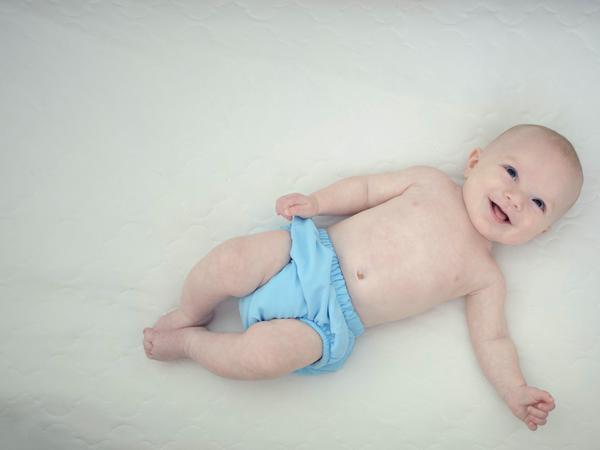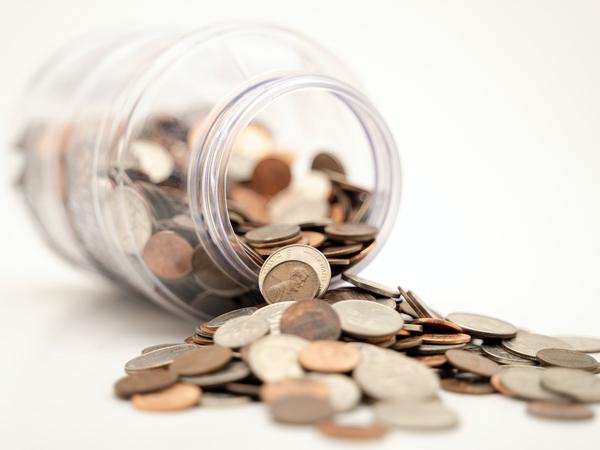Diaper subsidy - How your city helps you buy cloth diapers
Cloth diapers are a good thing in many ways - for your baby's health, for your wallet and for the environment. Fortunately, many cities, municipalities and counties in Germany have recognized this and provide financial support for the purchase of cloth diapers in the form of a diaper subsidy.
This means that you get a part of your money for the purchase of cloth di apers back after an appropriate application in connection with the presentation of the invoice. The amounts you receive vary from city to city and can even reach up to 225€. The fact that this topic seems to be in tune with the times is also reflected in the German government's new waste avoidance program, which is entitled "Appreciate instead of throw away.

Why are cloth diapers worth promoting?
Cloth diapers have many advantages over disposable diapers that are also of interest to society, municipalities and the government.
1) Protecting the environment with cloth diapers
This is the most significant advantage of cloth diaper. By the end of the diapering period, a child diapered with disposable diapers produces about 1 ton of diaper waste. In Germany alone, with 778,129 births (as of 2019), that would be a gigantic waste mountain of 778,129,000 kilograms that cannot be recycled.
Our residual waste consists on average of 10% diaper waste, which is a gigantic amount. Disposable diapers are made of pulp, polyethylene, polymer salts (superabsorbents) and kerosenes. They are made from trees and from petroleum products, which is an additional burden on the environment. Cloth diapers also use natural resources for manufacturing, but the diapers have a long life and can be worn by several children in a row.

2) Save costs with cloth diapers
Both cities and municipalities, but also parents can save a lot of money with cloth diapers. This means financial relief for both parties. If we assume that disposable diapers cost about 20 cents each and that a child needs about 5000 diapers on average, this adds up to costs of about 1000€. Cloth diaper packages, on the other hand, start at about €300 and cost about €150 to wash.

3) Promote health with cloth diapers
Using cloth diapers can prevent a sore bottom as well as diaper fungus. Cloth diapers allow air to circulate better around your baby's bottom, resulting in less buildup of moisture and heat. In addition, they do not contain absorbent or man-made nourishing mineral oil-based substances that reduce the skin's protective barrier. Thus, they are less conducive to bacteria and fungi. Cloth diapers made of wool are additionally nourishing for the skin with their natural ingredients such as lanolin.
4) Get dry faster with cloth diapers
The superabsorber in disposable diapers ensures that a lot of wetness can be stored for a long period of time without the child feeling damp. This is not the case with cloth diapers. When the diaper is full, the child notices this quite quickly and can thus develop a natural feeling for pee and bowel movements, which can help the child cope more quickly without a diaper.
What is the diaper grant mission?
Our project deine-stoffwindel.com is very committed to the introduction of the diaper subsidy. We, that is Oliver and Katharina, parents of a son since May 2018 and passionate cloth diaperers ourselves.
Even before the birth of our son, it was clear to us that we wanted to use cloth diapers, although we had no experience with them at all until then. We both agreed very quickly that our baby should not start a big "garbage career" right after birth and consume about 5,000 to 6,000 disposable diapers until the age of 3, which only decompose after several hundreds of years.
However, in the beginning we were not really sure where to get cloth diapers or how to use and care for them. Luckily, we then found a flyer of a cloth diaper store in the hospital and were very quickly convinced that the modern and beautiful cloth diaper systems are a really great solution.
Then, when our son was born, we could have resorted to a subsidized gray garbage can in our city. Unfortunately, the environmentally conscious alternative of disposable diapers was not subsidized there. We felt that this was extremely unfair, and so we came up with the idea of founding a website that informs parents about the diaper subsidy and helps them to enforce the diaper subsidy in their city.
You will therefore find an overview of the diaper subsidy on our website. This includes all cities, municipalities and counties that give a diaper subsidy for cloth diapers, the associated applications, as well as information about their amount.
If your city does not participate, you can use the contact form to request a letter from us, with which you can bring the issue to the political committees of your city. We will also be happy to use our previous political experience to advise you personally on how to proceed.
In addition to the diaper subsidy project, it was important to us to bundle cloth diaper knowledge and thus give parents a good orientation for getting started, but also for specific questions.
What are the advantages of the diaper subsidy?
- Parents can have part of their purchase costs for cloth diapers reimbursed and thus get through the diapering period even cheaper, provided that their city also grants a diaper subsidy. Subsidies range from €225 to €30 and vary by city.
- Cities and towns can greatly reduce their waste. It is estimated that 10% of gray waste is generated by disposable diapers alone. Where a gray garbage can for diaper waste is also subsidized, cities and municipalities have no or hardly any additional costs.

Be part of the diaper turnaround too. Take advantage of your city's cloth diaper subsidy or get actively involved by putting the issue on the political agenda. We are happy to help you.
Image sources
- Cover image: unsplash.com/photos/kd3qRzgEl70
- Image 1: unsplash .com/photos/ee5oz3INPdI
- Image 2: unsplash .com/photos/98on8Odqhis
- Image 3: unsplash .com/photos/lhltMGdohc8
- Image 4: unsplash .com/photos/CgWTqYxHEkg